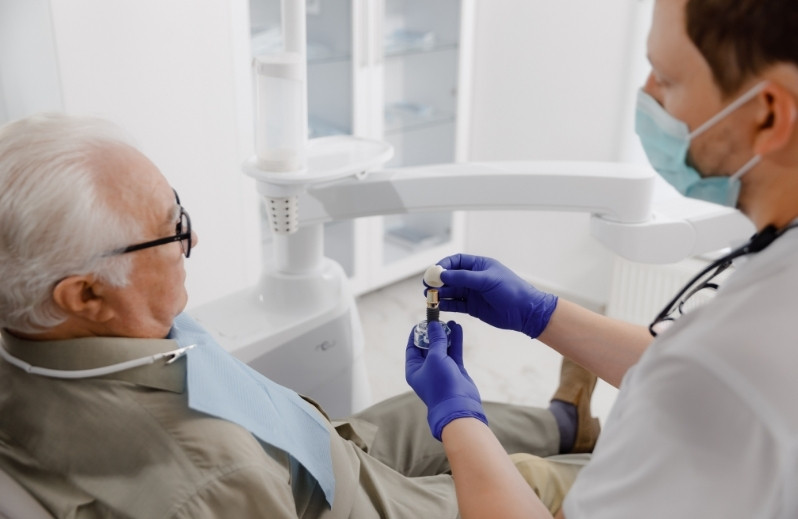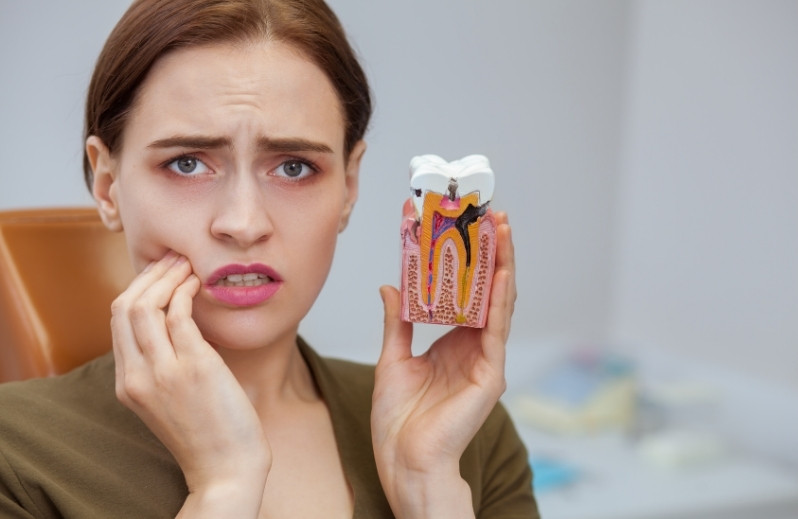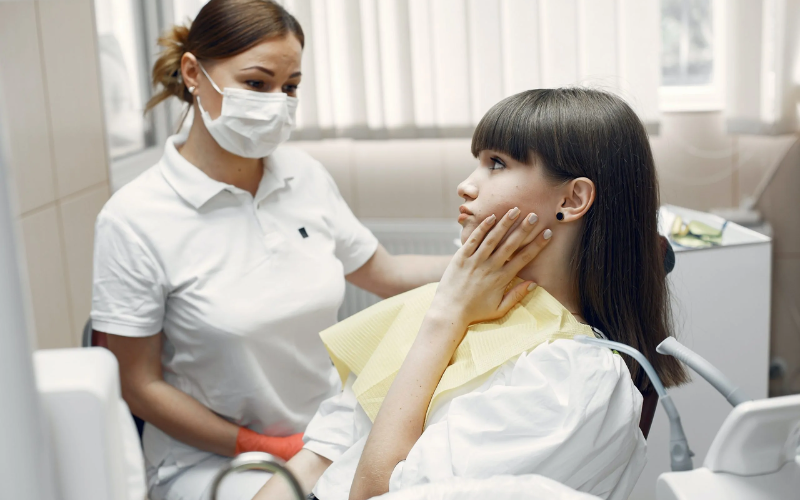
Dental emergencies can be a serious concern for seniors in Penn Township. Our teeth and gums become more vulnerable to decay, infection, and injury as we age. These problems can become more urgent when not addressed promptly, leading to more complex health concerns. This blog will explore why emergency dentistry is especially important for seniors, common dental emergencies they may face, and how to prevent and handle these situations.
Whether you have a severe toothache or a lost filling, knowing what to do in a dental emergency can help you maintain oral health.
Why is Emergency Dentistry Crucial for Seniors?
As seniors age, their oral health needs change significantly. Aging often leads to tooth decay, gum disease, dry mouth, and tooth loss, which can make dental emergencies more likely.
For example, gum disease can weaken the gums and make teeth more prone to falling out or breaking. Dry mouth, a common issue among older adults, increases the risk of cavities and infections. Without proper care, these minor issues can quickly escalate into dental emergencies.
Quick response to dental emergencies is crucial for seniors. Immediate treatment from an emergency dentist can help prevent complications like infections that could spread to other body areas.
Additionally, addressing problems like a broken tooth or a loose filling early on can save seniors from more extensive treatments later. Delaying care can worsen pain, tooth loss, and other complications that can affect overall health. Seniors must immediately seek emergency dental care when experiencing sudden oral discomfort or injury.
Common Dental Emergencies in Seniors
Seniors often experience a range of dental emergencies, from toothaches to broken fillings. Toothaches can arise from cavities, infections, or cracked teeth. If a senior experiences persistent pain or sensitivity, they should contact an emergency dentist immediately to address the issue.
Broken or lost fillings/crowns are another common emergency in seniors. Due to age-related wear or trauma, fillings and crowns may weaken or fall out. When this happens, it is essential to visit an emergency dentist quickly to prevent further tooth damage and avoid infection.
Gum infections or abscesses are serious emergencies that require prompt treatment. Seniors with gum disease or weakened immune systems are more susceptible to these infections, which can lead to severe complications, including the spread of infection. Symptoms include swelling, redness, pain, and pus.
Loose or lost teeth can happen due to weakened gums or bone loss. Seniors may experience teeth that become loose or even fall out. An emergency dentist Penn Township can assess the situation and decide whether a tooth can be saved or needs to be extracted.
Dry mouth is a common condition in seniors that can lead to dental emergencies. It can increase the risk of cavities, gum disease, and infections. Seniors who experience dry mouth should consult their dentist about ways to manage the condition and prevent further oral health issues.
Special Considerations in Emergency Dentistry for Seniors
When providing emergency dental care to seniors, it is crucial to consider the specific challenges they may face due to age-related health conditions. Seniors with arthritis may have difficulty opening their mouths wide enough for dental procedures.
Diabetes can affect oral health, leading to a higher risk of infections and slower healing. Seniors with heart disease or other cardiovascular issues may need special care when undergoing dental treatments, as certain procedures can cause complications.
Seniors’ medications, like blood thinners or antihistamines, can also impact dental treatment. Blood thinners, for example, can increase the risk of bleeding during dental procedures. Emergency dentists must know these medications to provide safe and effective care. Seniors should inform their dentist about all their medications before undergoing dental treatment.
Anxiety and fear of dental procedures are also common among seniors. Many older adults may have had negative experiences with dental care in the past. To help ease this anxiety, emergency dentists can offer sedation options, calming techniques, or simply spend extra time explaining the procedure.
Creating a calm, reassuring environment can make a big difference in helping seniors feel comfortable during dental emergencies.
What Seniors Should Do in a Dental Emergency?
If a senior experiences a dental emergency, the first step is to stay calm and assess the situation. For a toothache, they should rinse their mouth with warm water and apply a cold compress to reduce swelling.
If a tooth is knocked out, try to place it back in its socket or store it in milk until they can see an emergency dentist. For broken fillings or crowns, it’s best to avoid chewing on the affected side and seek immediate care.
In Penn Township, there are several local resources available for seniors. Emergency dental services are offered at various clinics, and many dental offices specialize in senior care. It’s important to have the contact information of an emergency dentist on hand. Seniors should also know the hours of operation for local emergency dental services and if walk-in appointments are available.
Seniors can expect a thorough examination of the problem area during an emergency dental visit. The dentist will take X-rays if necessary and discuss the best treatment options. Treatment may involve pain management, tooth repair, or infection control depending on the emergency.
Preventing Dental Emergencies for Seniors
Preventing dental emergencies is always better than reacting to them. Routine dental check-ups are essential for seniors, as regular visits allow dentists to detect problems early before they become emergencies. Seniors should visit their dentist at least twice yearly for comprehensive exams and cleanings.
Proper oral hygiene is vital in preventing dental issues that can lead to emergencies. Seniors should brush their teeth twice daily with fluoride toothpaste, floss regularly, and use an antimicrobial mouthwash to reduce the risk of gum disease and cavities. Dentists may also recommend special tools, such as softer toothbrushes or water flossers, to help seniors with limited dexterity maintain good oral hygiene.
Dietary changes can also help prevent dental emergencies. Seniors should avoid sugary foods and drinks that can lead to cavities. Drinking plenty of water is also important to keep the mouth hydrated and prevent dry mouth. A balanced diet rich in calcium and vitamins can help keep teeth and gums healthy.
Dental emergencies in seniors can be both painful and stressful. However, by understanding the common dental emergencies, special considerations for seniors, and how to prevent them, seniors in Penn Township can stay on top of their oral health. It’s crucial to seek emergency care immediately when issues arise, as early intervention can prevent more severe problems later.
Seniors and their caregivers should take proactive steps to maintain oral health through regular dental visits and good hygiene practices. If a dental emergency does occur, don’t hesitate to contact our emergency dentists for prompt, professional care.




